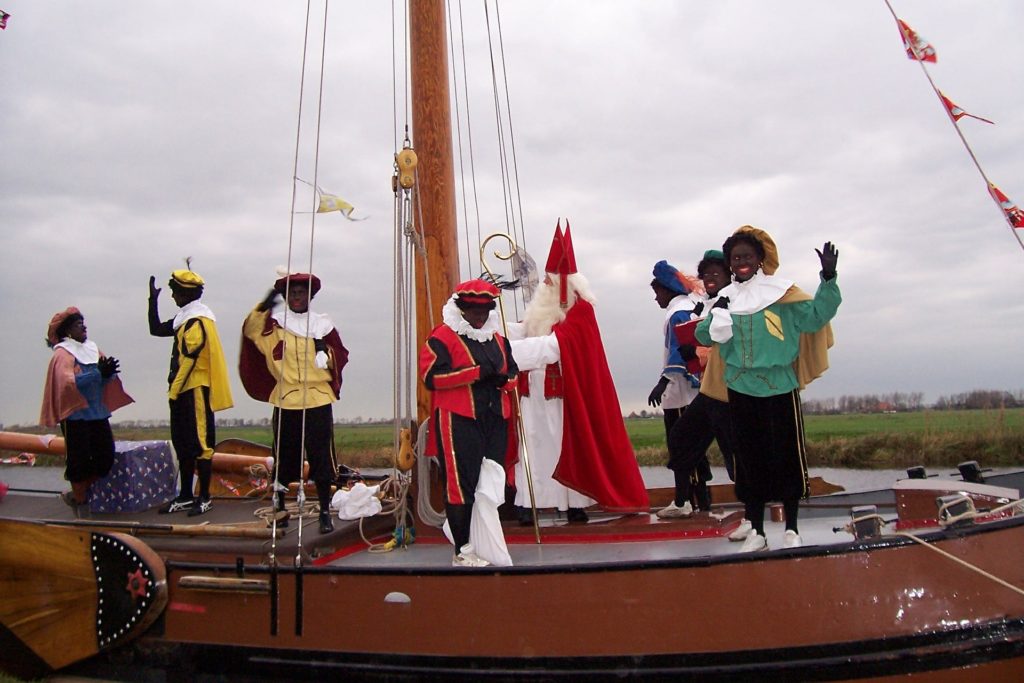How Do You Make A Dutch Surprise for Sinterklaas? – Part 2 Posted by Sten on Nov 30, 2021 in Culture, Dutch Language, Dutch Vocabulary, Holidays
Sinterklaas is back in the country. Yesterday, it was time to get your arts and crafts skills out to make surprises. Now we need the more intellectual, brainy side of you – we have to write a gedicht (poem). This is part 2 for the ultimate surprise for pakjesavond (“gift evening”) on December 5! Let’s dive in!
Each year again, Sinterklaas comes from Spain to make the Dutch, young and old, happy with snoepgoed (sweets) and cadeautjes (gifts). Even with some controversy around the event, it is a favorite holiday for many inhabitants of the Netherlands.
One special thing about Sinterklaas is that he does two things other gift givers don’t normally do:
- He makes a personal gift wrapper;
- He writes a personal gedicht for you.
Part 1 is about that gift wrapper, part 2 about the gedicht.
So how does he do it, and how can you help Sinterklaas with this monumental task?
Groetjes van Sinterklaas
So, now we have our surprise done for Jeroen, and it’s time to write that gedicht.
The gedicht might be even more personal and time-intensive than the surprise itself – but it’s often really fun too. As is tradition, they need to rhyme and they need to be written as if Sinterklaas wrote it. Usually, the theme is to reflect on some things that happened to the recipient during the last year. After all, Sinterklaas gives cadeautjes only to those that have been braaf (good).
Before opening the gift, the gedicht must be read out loud! This is why the gedichten often have some jokes and you can really feel the time people invested.
So let’s go back to Jeroen. You know he likes voetbal, so let’s relate it to that. And you have the worn down voetbalschoenen, you can use that as a joke. Let’s write a gedicht!
Beste Jeroen,
Toen ik een cadeau voor je zocht,
wist ik het meteen:
Je hebt niks met tennis of de Elfstedentocht,
liever heb je een voetbal aan je been.
Via Voetbalclub TV in Madrid
heb ik je vaak aangemoedigd.
Ook als het met die schoenen tegenzit,
kon ik zeggen: “zo, die is goed!”
Piet wees naar de schoenen en zei met een schrik
“Straks loopt hij op z’n zool!
Dan staan z’n voeten in de fik!
Zo schiet hij nooit meer een goal!”
Dus zocht ik in ons cadeautjesmagazijn
en vond het perfecte geschenk.
Met deze aan de voet sta je nooit meer aan de lijn,
en zal je altijd een winnaar zijn.
Groeten vanuit de Pakjesboot,
Sint.
(Dear Jeroen,
When I was looking for a gift for you,
I immediately knew:
You don’t care for tennis or the Elfstedentocht,
you rather have a football at your foot.
Through Football Club TV in Madrid
I often cheered you on.
Even if you’re held back by the shoes,
I could say: “man, he’s good!”
Pete pointed at the shoes and said in shock
“In no time he’ll be walking on his sole!
Then his feet will be burning!
Then he’ll never score a goal again!”
So I looked in our gift warehouse
and found the perfect gift.
With these on your feet, you’ll never be on the sidelines again,
and you’ll always be a winner.
Best regards from the Pakjesboot,
Sint.)
You can of course go in any direction you want with this, as long as it’s somehow related to Sint and him making a judgment about what the person with the gift needs.
At the end of the gedicht, the recipient of the gift often thanks Sinterklaas: Bedankt, Sinterklaas! And they unwrap the gift. Of course, over time that’s more as a joke from childhood, and the person that gave the gift is thanked, too.
And that’s it! Jeroen is really getting three gifts: a beautiful gedicht, a wonderful surprise, and awesome voetbalschoenen! Pretty nifty, isn’t it?
Have you made a surprise before? Do you do something similar in your culture? Do you have good ideas for a gedicht? Let me know in the comments below!

Build vocabulary, practice pronunciation, and more with Transparent Language Online. Available anytime, anywhere, on any device.




